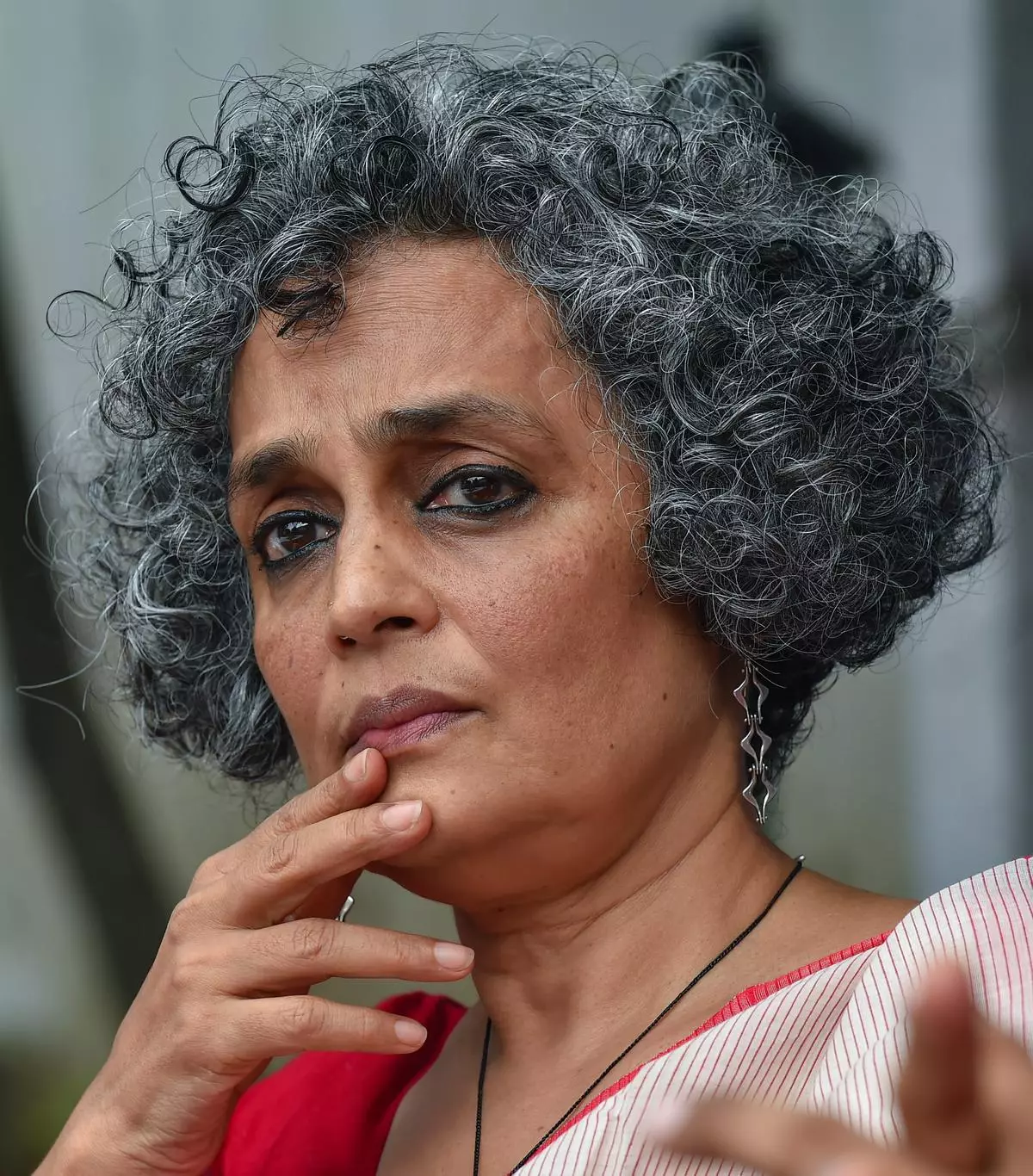From 2010 to 2024: UAPA Charges Against Arundhati Roy Spark Backlash

Sidra Fatima, TwoCircles.net
New Delhi: On June 14, 2024, Delhi Lieutenant Governor Vinai Kumar Saxena granted sanctions to prosecute noted writer Arundhati Roy and former Central University of Kashmir professor Dr Sheikh Showkat Hussain under the Unlawful Activities (Prevention) Act or UAPA. The charges stem from alleged incendiary speeches delivered at a 2010 seminar in support of Kashmir separatism, as confirmed by officials at Raj Niwas.
In addition to the UAPA charges, Saxena had sanctioned prosecutions under multiple sections of the Indian Penal Code (IPC) in October last year. These include 124-A (sedition), 153-A (promoting enmity between different groups), 153-B (assertions prejudicial to national integration), 504 (intentional insult with intent to provoke a breach of peace) and 505 (statements conducing to public mischief).
The impugned speeches were delivered at a seminar titled ‘Azadi-The Only Way’ held at LTG Auditorium, New Delhi, on October 21, 2010. The event drew a large audience to hear speakers, including the late Hurriyat leader Syed Ali Shah Geelani, Delhi University Professor SAR Geelani and Varavara Rao.
The sanctions come 14 years after a first information report (FIR) was filed against Roy and Dr. Hussain, following a complaint lodged by activist Sushil Pandit under Section 156(3) of the CrPC.
The complaint alleged that the duo propagated the idea that Kashmir was never a part of India and was forcibly occupied by the armed forces. Subsequently, the Metropolitan Magistrate Court in New Delhi directed the registration of an FIR, leading to an investigation.
A Ph.D. scholar of political science, who did not wish to be named, described the government’s recent actions as a “strategic manoeuvre”.
“It’s almost predictable that whenever the government faces backlash or gets embroiled in scandal, it brings up the Kashmir issue to divert public attention, as it stirs strong sentiments in India. The recent booking of Roy and Hussain under the UAPA, for a case that is 14 years old, is a calculated move. Initially charged under hate speech sections, which have time limitations, those proceedings expired after 14 years. With sedition charges blocked by the Supreme Court, the UAPA remains their sole option. This is not about legal necessity but about deflecting attention from current issues,” she stated.
“Unfortunately, this tactic has proven effective time and again as their red herring. The decision to pursue UAPA charges was driven by expired limitations on original charges, not by the case’s need for such drastic measures. This sets a troubling precedent for the future,” added the 23-year-old.
The move has sparked strong reactions from political figures and parties. Both the National Conference (NC) and the Peoples Democratic Party (PDP) have criticized the action, citing freedom of speech as guaranteed by Article 19 of the Constitution. The NC also highlighted the considerable time elapsed since the speeches were made, arguing that the prosecution in this case serves more as a political statement than a legal necessity.
“The NC strongly opposes the prosecution of author Arundhati Roy and Dr. Sheikh Showkat Hussain under the UAPA. Using anti-terror laws to suppress dissent and criminalize speech is deeply troubling,” it stated in a post on ‘X’ (formerly Twitter).
PDP chief Mehbooba Mufti condemned the sanction as “shocking”. “It is shocking that Arundhati Roy, a world-renowned author and a courageous voice against fascism, has been charged under the draconian UAPA,” she stated on the microblogging site.
Mufti’s daughter Iltija Mufti echoed similar sentiments, expressing concern over the broader implications for freedom of expression in India.
“I believe the decision to prosecute two academics in a 14-year-old case underscores the blatant insecurity of the current regime. There appears to be a pattern targeting academics, journalists and public figures as a warning to align with the government’s stance or face similar consequences,” remarked a master's student at a central university.
Vedant Joshi, 23, voiced his perspective, “While I may disagree with Arundhati, I strongly uphold freedom of expression as fundamental in any civilized society. Arundhati’s views clash with the prevailing political establishment, lending her stance a political dimension.”
“However, I am surprised that even after 14 years, India’s judiciary, political system, and above all, civil society are still grappling with the same issues,” he stated.
Officials at Raj Niwas continue to assert that speeches made during the 2010 conference were provocative and advocated for separation from India, justifying stringent legal measures. This case highlights ongoing tensions between freedom of speech and anti-terrorism laws in India.
“The decision to prosecute is an act of pure malice by this government. The fact that this case has been pending for so long, like the proverbial Sword of Damocles, underscores how the state uses legal mechanisms to silence critics and dissenters,” added Manisha Sethi, an author and an assistant professor at the Centre for the Study of Comparative Religions and Civilizations, Jamia Millia Islamia.
Journalist Saurav Das describes the author’s prosecution under stringent anti-terror law as an act of cowardice. “Sanctioning the prosecution of Arundhati Roy under the UAPA for a speech delivered way back in 2010 is cowardly,” he wrote on X.
Notably, according to him, the section she is charged with (Section 13 of the UAPA) is for “unlawful activities, not for terrorist acts” as being reported.
“If she is arrested, she will not face the strict conditions that make securing bail impossible under the UAPA. Still, invocation of the anti-terror law against one of India’s finest intellectuals is highly unwarranted,” he said.
The section punishes anyone who commits, abets, advises, advocates or incites commission of unlawful activity. “Fourteen years have passed since the speech, what unlawful activity has taken place,” he asked.
